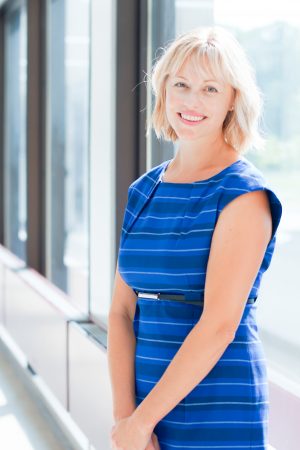Dr. Jousse Lecture Series
Welcome to the new Dr. Albin T Jousse Lecture Series in collaboration with Best Practice Forum, which is sponsored by the Rehabilitation Engineering Laboratory, the Spinal Cord Rehab Program, the Neural Engineering and Therapeutics Team, and Toronto Rehab.
The purpose of this lecture series is to provide a venue for scientists, physicians and clinicians working in rehab settings as well as students, consumers and their caregivers to share knowledge, present the latest research findings and participate in a dialogue on what it means to live with disability. The lectures will be 45 minute long followed by 15 minutes of questions.
Coordinator of the Dr. Albin T. Jousse Lecture Series is Dr. Kristin Musselman . If you have any comments, concerns or would like to present please send us an email at kristin.musselman@uhn.ca.
The series is currently in its 11th season.

- This lecture has passed.
Aimee J. Nelson – Changes in the organization of the motor cortex that follow incomplete spinal cord injury; insights for rehabilitative strategies
March 8, 2018 @ 12:00 pm - 1:00 pm

Abstract
Movement training for improving upper limb control is an essential component of rehabilitation for individuals with spinal cord injury (SCI). Understanding the cortical representation of arm muscles in SCI is fundamental to designing more effective movement training regimes. In uninjured individuals, the primary motor cortex (M1) contains overlapping muscle representations, an organization that reflects muscle synergies. This organizational feature has yet to be studied in SCI yet is considered a key element that defines the coordinated action of multiple muscles during human movement. Using Transcranial magnetic stimulation (TMS), we investigated the bilateral representation and overlapping distribution of muscles of the upper limb in chronic cervical SCI and aged-matched controls (n=9, each group). Muscles studied included the abductor pollicus brevis (APB), flexor carpi radialis (FCR) and biceps brachii (BB) and the cortical territory (cm2), overlapping territory (cm2) of the target muscles, and center of gravity were computed. Results indicate a reduction in the cortical territory dedicated to all three muscles in SCI (i.e. reduced complete overlap) compared to uninjured controls. Further, SCI had greater cortical territory dedicated to a single or dual muscle representation. These data indicate that overlapping organization is preserved in the motor cortex of SCI, however, the overlapping representation does not extend to all three muscles. The implication from these data is that movement training emphasizing synergies that incorporate all three muscles (APB, FCR, BB) may promote greater representational overlap (similar to uninjured controls) and provide functional gains in motor control.
About the Speaker
Aimee J. Nelson (PhD) is Associate Professor in the Department of Kinesiology at McMaster University and a Canada Research Chair (Tier 2) in Sensorimotor control. Her research laboratory investigates neural plasticity within sensorimotor spinal and motor cortical circuits for the ultimate purpose of improving human movement in individuals with neurological injury and/or disease. Her neurophysiology and neuroimaging research aims to understand the neural mechanisms that underpin plasticity-inducing interventions including non-invasive brain stimulation and exercise.